Deadlines Approaching for $3 Billion in EDA American Rescue Plan Grants
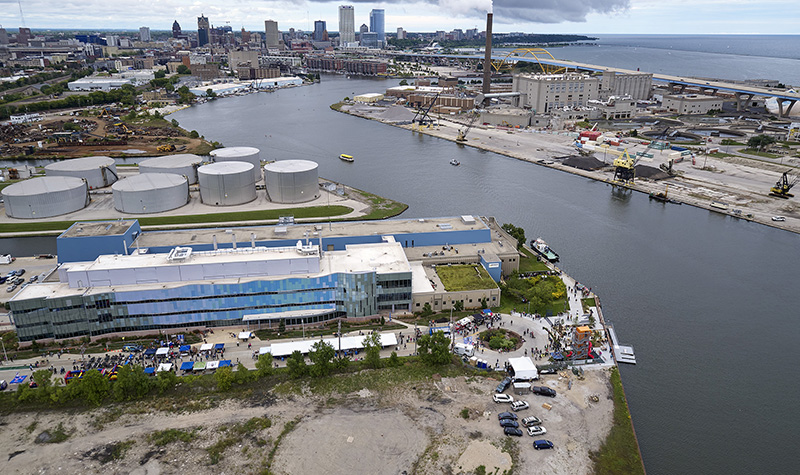
It’s time to get serious about the U.S. Economic Development Administration’s (EDA) $3 billion funding infusion waiting to flow to local governments and other entities as part of the American Rescue Plan Act (ARPA). Historically the EDA receives and distributes about $350 million annually to fund infrastructure projects across the nation through grant programs. Now, through several special grant programs with deadlines between October 2021 and March 2022, the EDA will be doling out nearly 10 times that amount.
Here are the details on who should apply when for these transformational funding opportunities.
Build Back Better Regional Challenge
The Build Back Better Regional Challenge is designed to assist communities nationwide in their efforts to accelerate the economic recovery from the coronavirus pandemic and build local economies that will be resilient to future economic shocks.
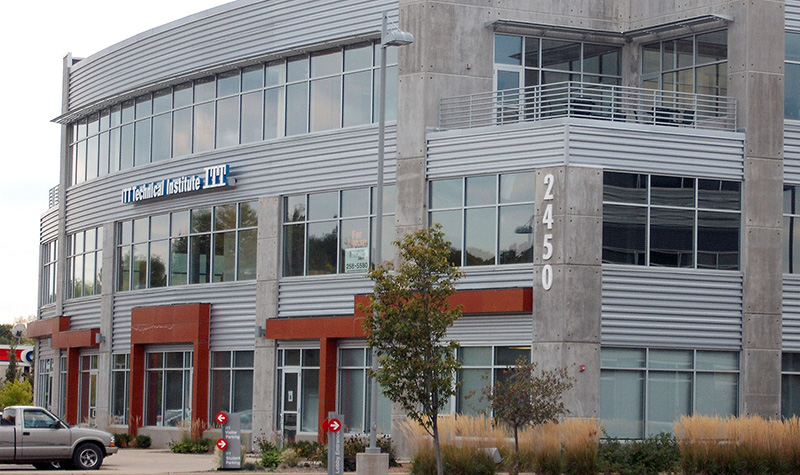 The $1 billion Build Back Better Regional Challenge will invest in regions nationwide that want to revitalize their economies. These regions will have the opportunity to grow new regional industry clusters or scale existing ones through planning, infrastructure, innovation and entrepreneurship, workforce development, and access to capital.
The $1 billion Build Back Better Regional Challenge will invest in regions nationwide that want to revitalize their economies. These regions will have the opportunity to grow new regional industry clusters or scale existing ones through planning, infrastructure, innovation and entrepreneurship, workforce development, and access to capital.
Who Should Apply?
The EDA invites eligible applicants to form regional coalitions with industry and community partners and aligned around a holistic vision to build and scale a strategic industry cluster. Coalition members eligible to apply for assistance for their region include:
- State, county, city, or other political subdivisions of a state, including a special purpose unit of a state or local government engaged in economic or infrastructure development activities, or a consortium of political subdivisions
- Institutions of higher education or consortiums of colleges/universities
- Public or private non-profit organizations or associations acting in cooperation with officials of a political subdivision of a state
- District organizations of an EDA-designated Economic Development District
- Indian tribes or a consortium of tribes
Deadline: Oct. 19, 2021, for Phase 1: Between 50 and 60 regional coalitions of partnering entities will be awarded approximately $500,000 in technical assistance funds to develop and support three to eight projects to grow a regional growth cluster. Phase 1 technical assistance grants awarded to Concept Proposal finalists will not have a cost share or local match requirement.
Deadline: March 15, 2022, for Phase 2: The EDA will award 20 to 30 regional coalitions up to $100 million to implement projects identified in Phase 1. For component projects awarded under Phase 2, the EDA expects to fund at least 80% of eligible costs due to the severe economic dislocation caused by the coronavirus pandemic. For Indian tribes – and in very limited other circumstances – the EDA may establish a maximum investment rate up to 100% of the eligible costs of an individual component project within the regional growth cluster.
Notice of Funding OpportunityBuild Back Better FAQBuild Back Better Webinar
Good Jobs Challenge
The EDA’s Good Jobs Challenge aims to get Americans back to work by building and strengthening systems and partnerships that bring together employers with hiring needs and other key entities to train workers with in-demand skills that lead to well-paying jobs.
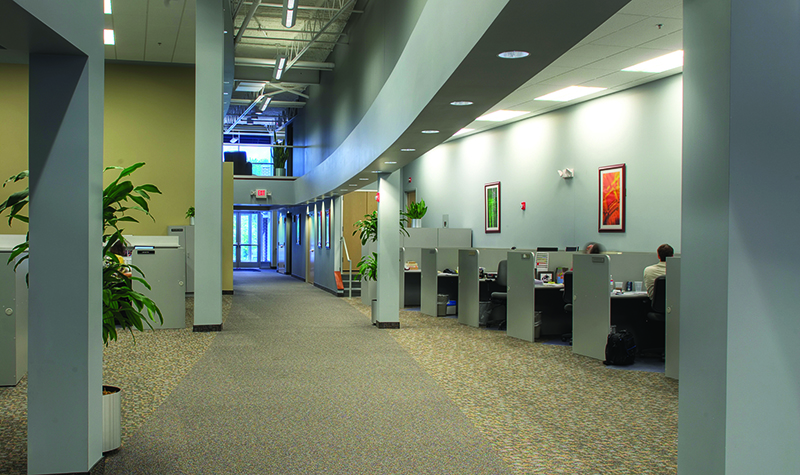 The EDA is allocating $500 million to collaborative skills training systems and programs. The EDA encourages efforts to reach historically underserved populations and areas, communities of color, women, and other groups facing labor market barriers such as persons with disabilities, disconnected youth, individuals in recovery, individuals with past criminal records including justice impacted and reentry participants, serving trainees participating in the Supplemental Nutrition Assistance Program (SNAP), Temporary Assistance for Needy Families (TANF) and Women, Infants and Children (WIC), and veterans and military spouses.
The EDA is allocating $500 million to collaborative skills training systems and programs. The EDA encourages efforts to reach historically underserved populations and areas, communities of color, women, and other groups facing labor market barriers such as persons with disabilities, disconnected youth, individuals in recovery, individuals with past criminal records including justice impacted and reentry participants, serving trainees participating in the Supplemental Nutrition Assistance Program (SNAP), Temporary Assistance for Needy Families (TANF) and Women, Infants and Children (WIC), and veterans and military spouses.
These systems and partnerships will create and implement industry-led training programs designed to provide skills for and connect unemployed or underemployed workers to existing and emerging job opportunities offering good pay, benefits, and growth opportunities.
The EDA will fund proposals within the following three phases, as applicable to regional needs:
- System Development: Help establish and develop a regional workforce training system comprising multiple sector partnerships.
- Program Design: Develop skills training curriculum and materials, and secure technical expertise needed to train workers.
- Program Implementation: Implement non-construction projects needed to provide workforce training and connect workers with quality jobs, including wrap-around services.
Matching share is not a requirement for this funding opportunity; however, applicants may choose to provide match as part of the project. This may be taken into consideration for scoring purposes.
Who Should Apply?
The Good Jobs Challenge is designed to support the needs of an applicant’s identified regional workforce system through a single integrated award. Eligible applicants for the Good Jobs Challenge include:
- State, county, city, or other political subdivisions of a state, including a special purpose unit of a state or local government engaged in economic or infrastructure development activities, or a consortium of political subdivisions
- Institutions of higher education or consortiums of colleges/universities
- Public or private non-profit organizations or associations acting in cooperation with officials of a political subdivision of a state
- District organizations of an EDA-designated Economic Development District
- Indian tribes or a consortium of tribes
Deadline: January 26, 2022
Notice of Funding OpportunityGood Jobs FAQGood Jobs Webinar
Economic Adjustment Assistance
Grants totaling $500 million are available to communities through the Economic Adjustment Assistance (EAA) program. This is the EDA’s most flexible program, and grants made under it will help hundreds of communities across the nation plan, build, innovate, and put people back to work through construction or non-construction projects designed to meet local needs.
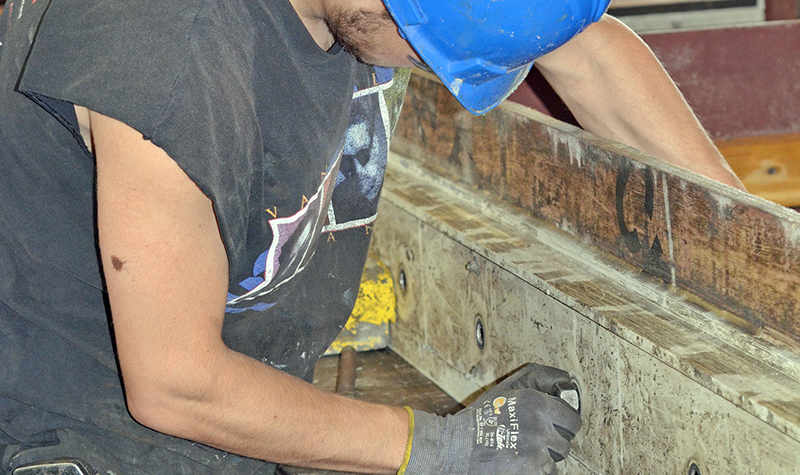 A wide range of technical, planning, workforce development, entrepreneurship, and public works projects are eligible for funding. As part of the Coal Communities Commitment, the EDA will allocate at least $200 million of the Economic Adjustment Assistance funding to support coal communities.
A wide range of technical, planning, workforce development, entrepreneurship, and public works projects are eligible for funding. As part of the Coal Communities Commitment, the EDA will allocate at least $200 million of the Economic Adjustment Assistance funding to support coal communities.
The presumptive grant rate for these programs is 80%, although the EDA has discretion to reach 100%. Unlike with past EDA grant programs, applications that provide more match may be more competitive.
Who Should Apply?
Eligible applicants for EDA’s Economic Adjustment Assistance program include:
- State, county, city, or other political subdivisions of a state, including a special purpose unit of a state or local government engaged in economic or infrastructure development activities, or a consortium of political subdivisions
- Institutions of higher education or consortiums of colleges/universities
- Public or private non-profit organizations or associations acting in cooperation with officials of a political subdivision of a state
- District organizations of an EDA-designated Economic Development District
- Indian tribes or a consortium of tribes
Suggested Deadline: March 15, 2022 (applications reviewed on a rolling basis)
Notice of Funding OpportunityEconomic Adjustment Assistance FAQEconomic Adjustment Assistance Webinar
Indigenous Communities
Through the Indigenous Communities program, the EDA is allocating $100 million in American Rescue Plan funding specifically for indigenous communities. The EDA will support these important partners to develop and execute economic development projects that will help them to recover from the pandemic and build economies for the future.
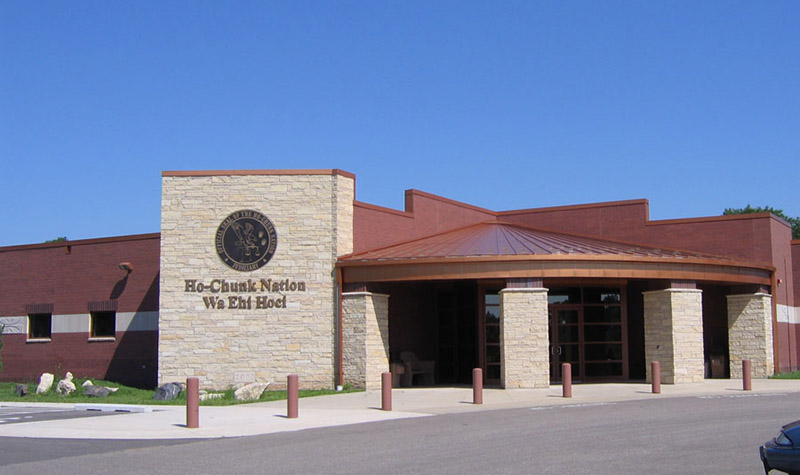 A wide range of technical, planning, workforce development, entrepreneurship, and public works and infrastructure projects are eligible for funding. Indigenous communities are also eligible and encouraged to apply under all of the EDA’s other programs. All awards will be made at a 100% grant rate; no matching funds are required.
A wide range of technical, planning, workforce development, entrepreneurship, and public works and infrastructure projects are eligible for funding. Indigenous communities are also eligible and encouraged to apply under all of the EDA’s other programs. All awards will be made at a 100% grant rate; no matching funds are required.
Who Should Apply?
Eligible entities under this EDA program are:
- Indian tribes or a consortium of tribes
- Public or private non-profit organizations or associations serving Native Hawaiians
- Public or private non-profit organizations or associations serving Native Pacific Islanders of Guam, American Samoa, the Commonwealth of the Northern Mariana Islands, the Republic of the Marshall Islands, the Federated States of Micronesia, or the Republic of Palau
Suggested Deadline: March 15,2022 (applications reviewed on a rolling basis)
Notice of Funding OpportunityIndigenous Communities FAQIndigenous Communities Webinar
Travel, Tourism & Outdoor Recreation
Through the Travel, Tourism & Outdoor Recreation program, the EDA is focused on accelerating the recovery of communities that rely on the travel, tourism, and outdoor recreation sectors with $750 million allocated to support the following efforts:
- State Tourism Grants: $510 million in non-competitive awards to help states quickly invest in marketing, infrastructure, workforce, and other projects.
- Competitive Grants: $240 million to help communities that have been hardest hit by challenges facing the travel, tourism, and outdoor recreation sectors to invest in infrastructure, workforce, or other projects to support industry recovery and community resilience.
Eligible projects include construction and non-construction projects that support the travel, tourism, or outdoor recreation sectors. For the most part this component is intended to fund projects that are focused on new and expanded infrastructure, projects with a multi-state or national focus, and projects in regions most adversely affected by the coronavirus pandemic’s damage to the travel, tourism, and outdoor recreation sectors.
 All awards for State Tourism Grants will be made at a 100% grant rate; no matching funds are required. The EDA expects to fund at least 80% of project costs through the Competitive Tourism Grants. The EDA may increase the federal share up to 100% on a case-by-case basis.
All awards for State Tourism Grants will be made at a 100% grant rate; no matching funds are required. The EDA expects to fund at least 80% of project costs through the Competitive Tourism Grants. The EDA may increase the federal share up to 100% on a case-by-case basis.
Who Should Apply?
Eligible applicants for the EDA’s Competitive Tourism Grants program include:
- State, county, city, or other political subdivisions of a state, including a special purpose unit of a state or local government engaged in economic or infrastructure development activities, or a consortium of political subdivisions
- Institutions of higher education or consortiums of colleges/universities
- Public or private non-profit organizations or associations acting in cooperation with officials of a political subdivision of a state
- District organizations of an EDA-designated Economic Development District
- Indian tribes or a consortium of tribes
Suggested Deadline: March 15, 2022 (applications reviewed on a rolling basis)
Notice of Funding OpportunityTravel, Tourism & Outdoor FAQTravel, Tourism & Outdoor Webinar
Statewide Planning, Research & Networks
Building back better means investing in projects that will promote equity and develop local economies that will be resilient to future economic shocks and climate change. Through the Statewide Planning, Research & Networks program, the EDA is supporting states in planning efforts by allocating $59 million for Statewide Planning Grants.
States can undertake a variety of planning activities, including but not limited to developing economic development plans that identify new or existing industry clusters that would benefit from specific infrastructure, studies, and/or workforce investments to facilitate rapid expansion of such industry clusters, analyzing the needs of persistent poverty communities, bringing together potentially disparate existing local and regional plans into one holistic and inclusive statewide plan, analyzing the needs of persistent poverty communities and formulating strategies to reduce disparities between those areas and more prosperous areas, cataloging state innovation and entrepreneurship assets, and undertaking a statewide supply chain and logistics assessments to increase efficiencies.
 In addition, the program will allocate $31 million for Research and Networks Grants to invest in research that assesses the effectiveness of the EDA’s programs and provides support for stakeholder communities around key EDA initiatives.
In addition, the program will allocate $31 million for Research and Networks Grants to invest in research that assesses the effectiveness of the EDA’s programs and provides support for stakeholder communities around key EDA initiatives.
The EDA anticipates awarding $200,000 to $600,000 each for projects that support research and evaluation into economic recovery from the coronavirus pandemic. The EDA is interested in real-time research into its American Rescue Plan programs, especially the new Good Jobs Challenge; Build Back Better Regional Challenge; Indigenous Communities program; and Travel, Tourism and Outdoor Recreation program.
Statewide Planning grants will be made at a 100% grant rate; no matching funds are required.
Who Should Apply?
Eligible applicants for the EDA’s Communities of Practice and Research Grants include:
- State, county, city, or other political subdivisions of a state, including a special purpose unit of a state or local government engaged in economic or infrastructure development activities, or a consortium of political subdivisions
- Institutions of higher education or consortiums of colleges/universities
- Public or private non-profit organizations or associations acting in cooperation with officials of a political subdivision of a state
- District organizations of an EDA-designated Economic Development District
- Indian tribes or a consortium of tribes
Suggested Deadline: October 31, 2021 (applications reviewed on a rolling basis)
Notice of Funding OpportunityResearch & Networks FAQResearch & Networks Webinar
The grants landscape is complex and the rules ever changing. A funding expert can get a community through the process of figuring out what grant programs look most promising for a particular project and how to prepare for all the steps that lie between concept and winning.

Post a comment: